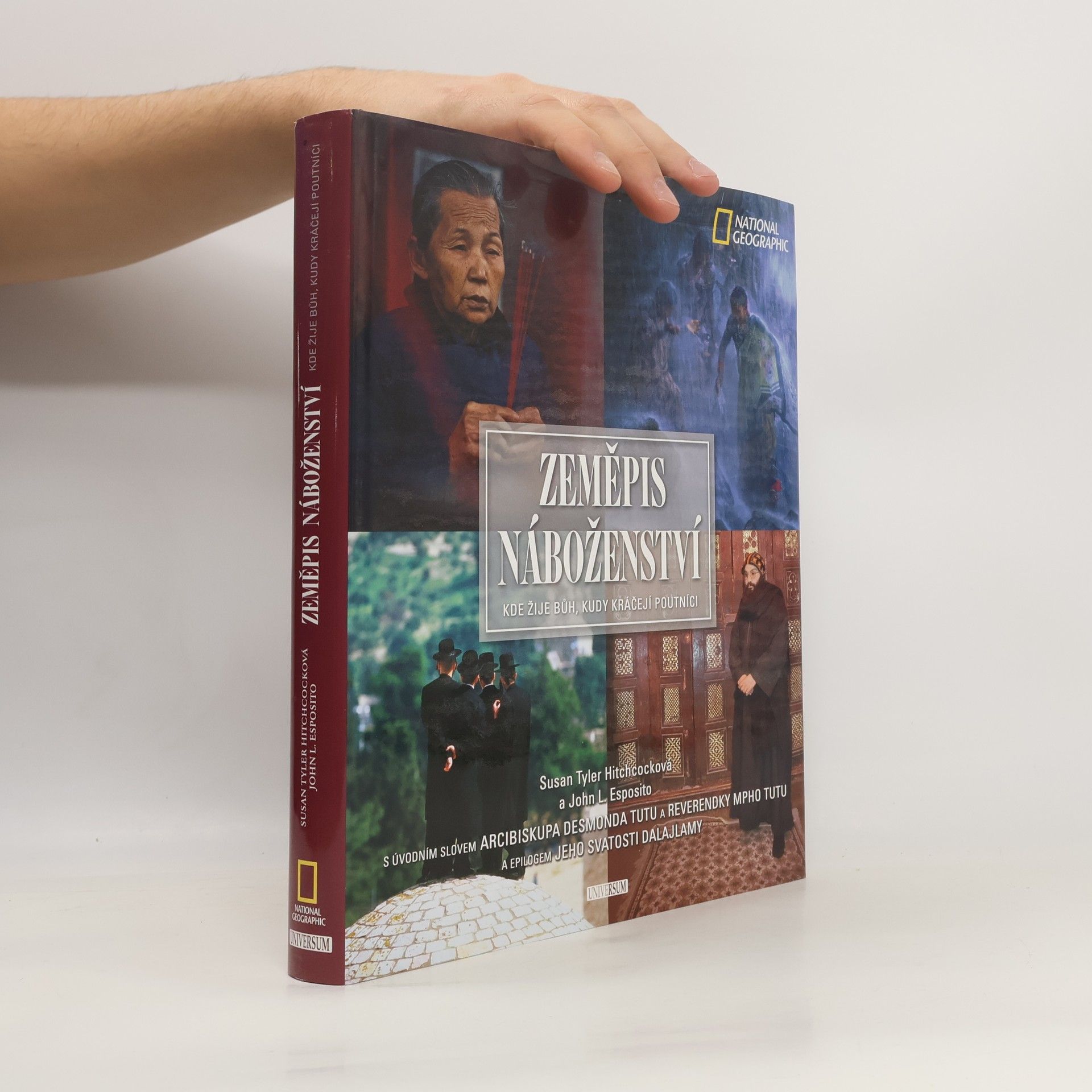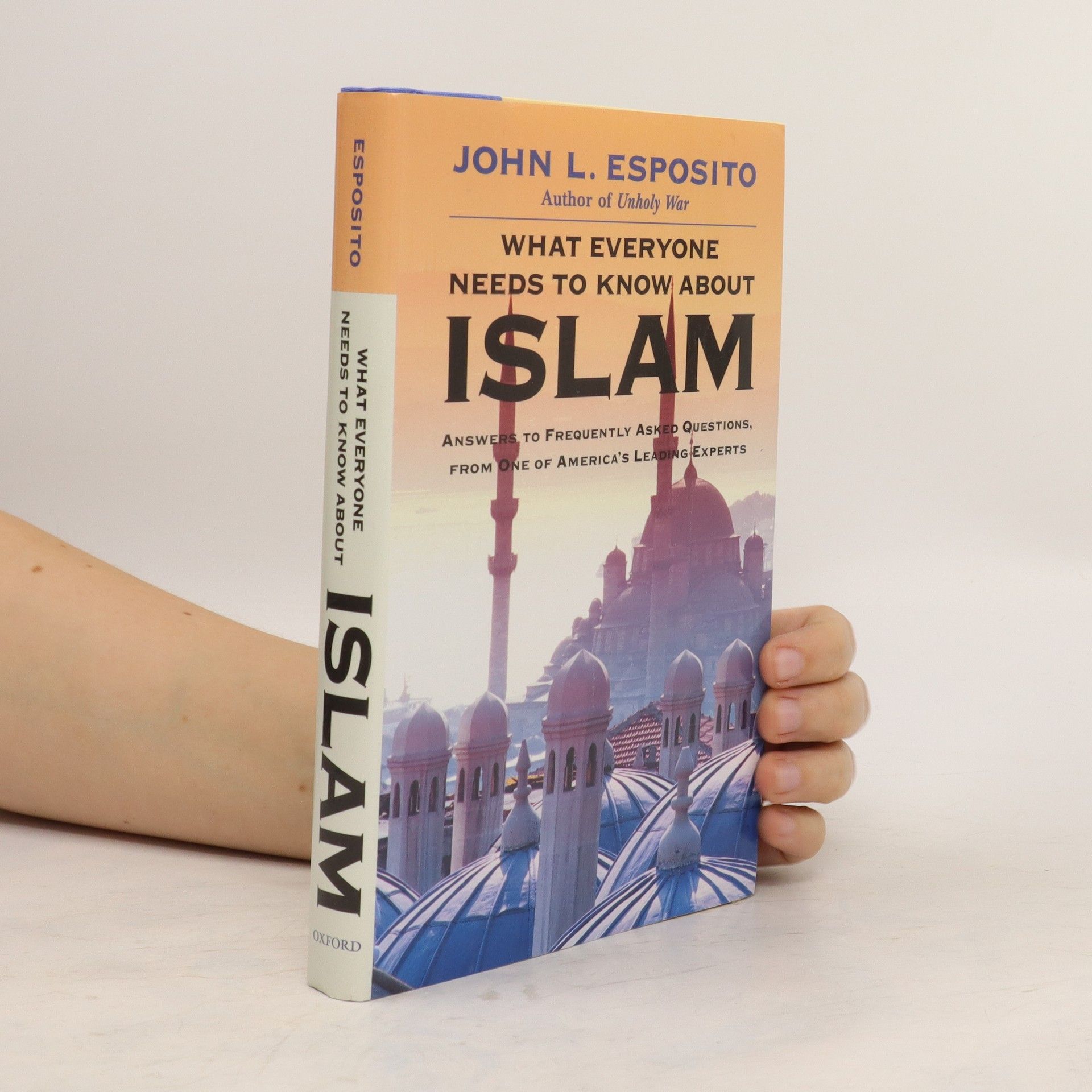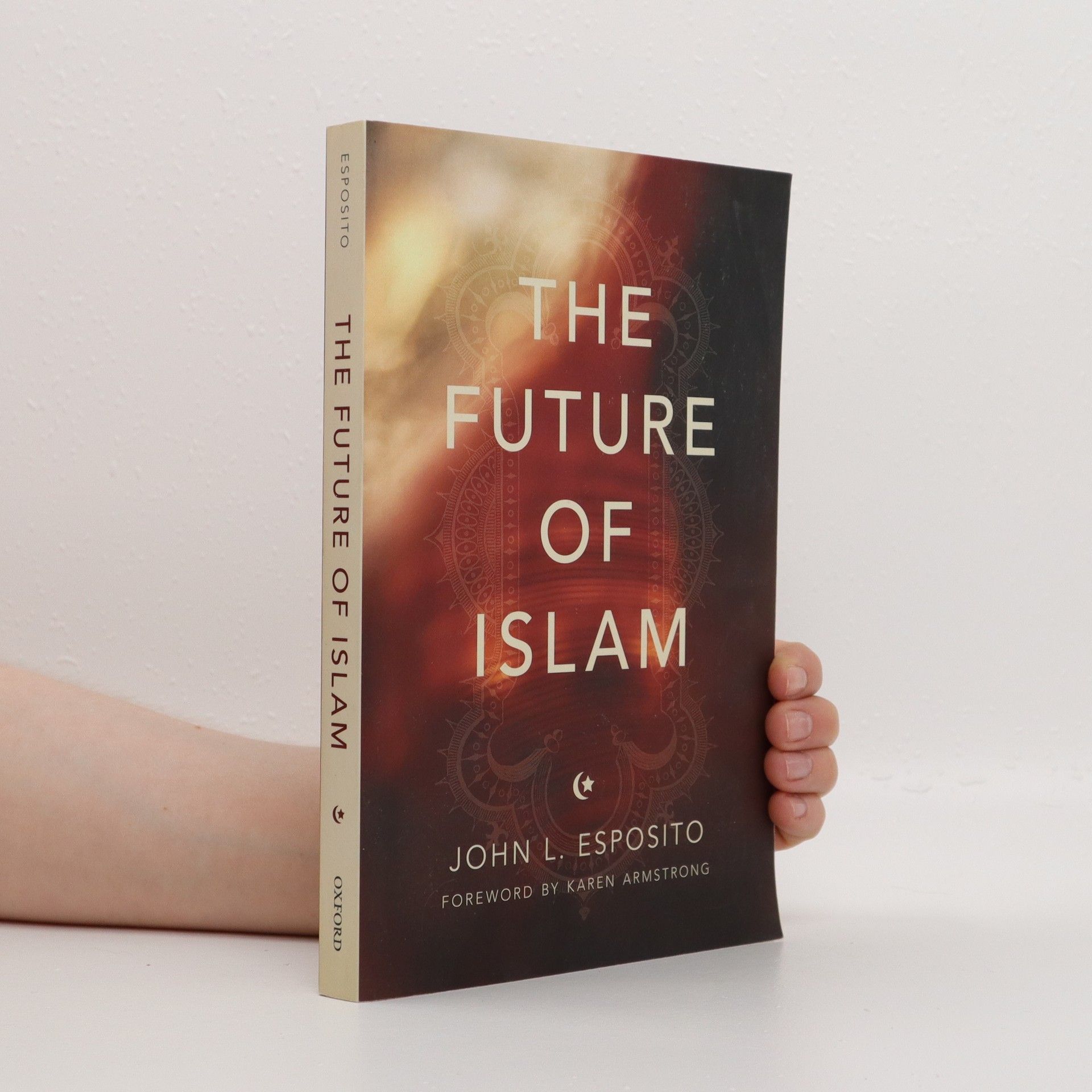John Esposito Book order (chronological)
This author delves into the intricate connections between Islam and international affairs, focusing on political Islam and its global ramifications. Their work is characterized by a commitment to fostering understanding and building bridges between Muslim and Christian communities. With extensive expertise on Islamic movements across continents, they provide insightful analyses valuable to both academic circles and the general public. They are a recognized voice in promoting the public understanding of religion.






The future of Islam
- 256 pages
- 9 hours of reading
In this brilliant portrait of Islam today—and tomorrow—John L. Esposito draws on a lifetime of thought and research to sweep away the negative stereotypes and provide an accurate, richly nuanced, and revelatory account of the fastest growing religion in the world. Recent decades have brought extraordinary changes in the Muslim world, and in addressing all of these issues, Esposito paints a complex picture of Islam in all its diversity—a picture of urgent importance as we face the challenges of the coming century.
Was Muslime wirklich denken. Der Alltag, die Extremisten, die Wahrheit dazwischen
- 222 pages
- 8 hours of reading
Das Buch beleuchtet die Integration der Mehrheit der Muslime in Deutschland und deren Streben nach Freiheit und wirtschaftlicher Teilhabe, ähnlich wie in Industrienationen. Es basiert auf einer umfassenden Gallup-Studie, die Vorurteile abbaut und einen realistischen Einblick in die Werte und Einstellungen von 1,3 Milliarden Muslime weltweit bietet.
Tutto quello che dovresti sapere sull'Islam e che nessuno ti ha mai raccontato
- 218 pages
- 8 hours of reading
È vero che civiltà occidentale e Islam sono inconciliabili? Cosa ne pensa quel miliardo e mezzo di fedeli musulmani che conosciamo così poco? Tutto quello che dovresti sapere sull’Islam e che nessuno ti ha mai raccontato finalmente squarcia il velo dei pregiudizi dando voce a un mondo composito, troppo spesso ignorato o frainteso. I dati qui presentati sono il frutto di un pluriennale sondaggio di opinione, condotto attraverso decine di migliaia di interviste realizzate in più di 35 nazioni a popolazione prevalentemente musulmana o con una presenza musulmana significativa. Le domande formulate per il campione degli intervistati toccano temi di scottante attualità: c’è l’Islam dietro il terrorismo? Perché il sentimento anti-americano nel mondo islamico è così forte? Chi sono gli estremisti? Che seguito hanno presso la gente comune? Quali sono i reali desideri delle donne musulmane? Tralasciando ogni presa di posizione preconcetta e ogni artificio retorico, basandosi semplicemente sulle evidenze emerse dai dati analizzati, John L. Esposito e Dalia Mogahed rivelano quale sia il sentire diffuso nel mondo islamico, non quello dei cosiddetti “esperti”, ma quello degli uomini e delle donne intorno a noi. E i risultati sono sorprendenti.
Tato rozsáhlá monografie zkoumá místa zrodu pěti velkých náboženství, sleduje jejich šíření po světě a zabývá se rolí víry v lidských životech a kulturách v uplynulých staletích. Můžeme v ní sledovat zrod hinduismu a buddhismu v Indii, stejně jako osudy tří velkých monoteistických náboženství – judaismu, křesťanství a islámu na Předním východě, a to až do 21. století. Před námi se tak odkryje fascinující historie zbožnosti, od jednoduchých rituálů inspirovaných lidským údivem nad silami přírody, které se během tisíciletého vývoje přetvořily do promyšlených myšlenkových systémů, bohatého písemnictví a složitých tradic.
Islam i izazov demokracije
- 101 pages
- 4 hours of reading
What Everyone Needs to Know about Islam
- 224 pages
- 8 hours of reading
In the aftermath of the terrorist attacks of September 11th, there has been an overwhelming demand for information about Islam. As a leading expert, John Esposito has found himself called upon to speak to a wide range of audiences, including members of Congress, the Bush administration,government agencies, the military, and the media. Out of this experience, he has identified the most pressing questions people consistently ask about Islam.In What Everyone Needs to Know about Islam , Esposito presents in question-and-answer format the information that most people want to know. Esposito provides succinct, accessible, sensitive, and even-handed answers to questions that range from the general--"What do Muslims believe?" and "Whowas Muhammad?"--to more specific issues like Is Islam compatible with modernization, capitalism and democracy? How do Muslims view Judaism and Christianity? Are women second-class citizens in Islam? What is jihad? Does the Quran condone terrorism? What does Islam say about homosexuality, birthcontrol, abortion, and slavery?The editor of The Oxford Encyclopedia of Modern Islam and The Oxford History of Islam , and author of Unholy War and many other acclaimed works, John Esposito is one of America's leading authorities on Islam. This brief and readable book is the first place to look for information on the faith,customs, and political beliefs of the more than one billion people who call themselves Muslims.
